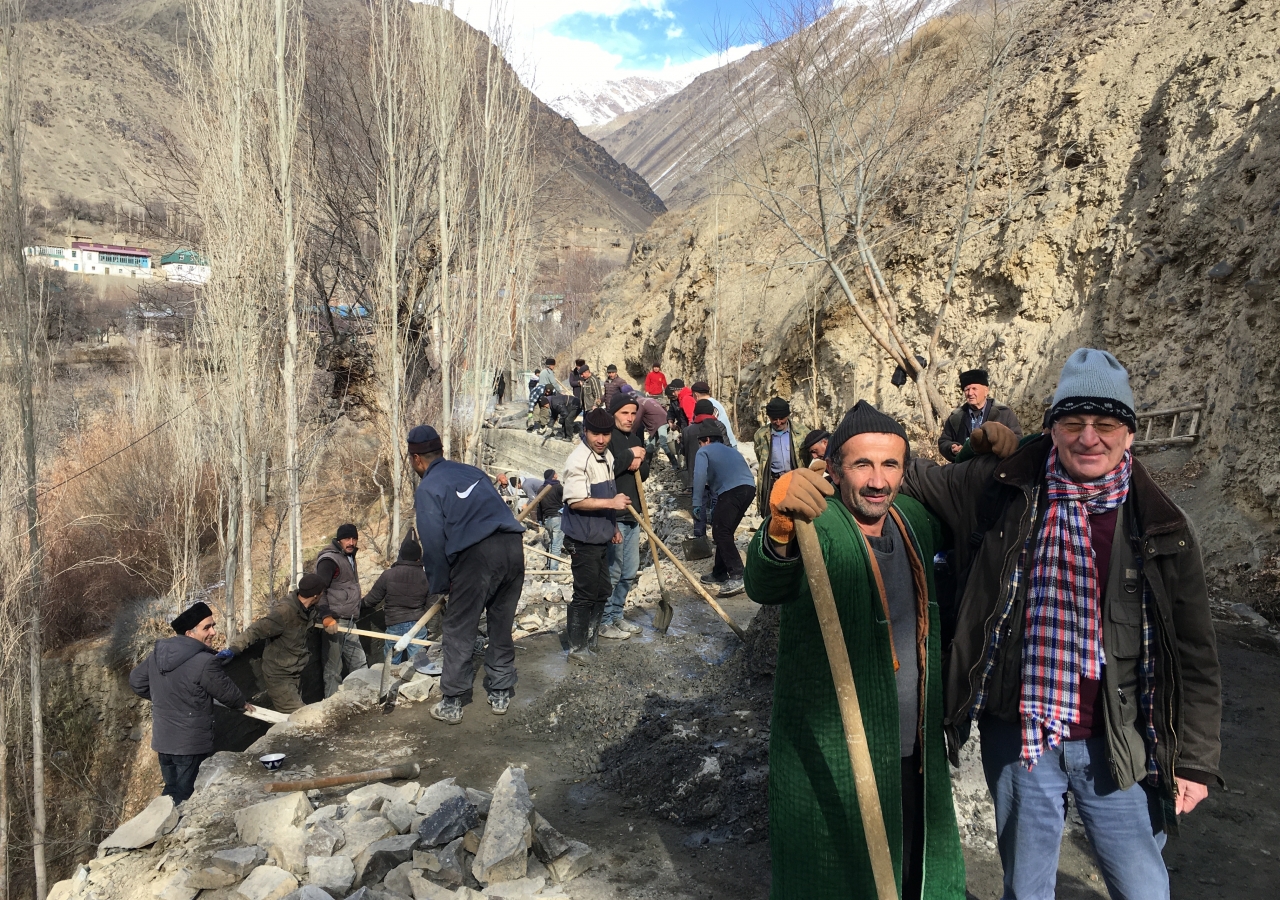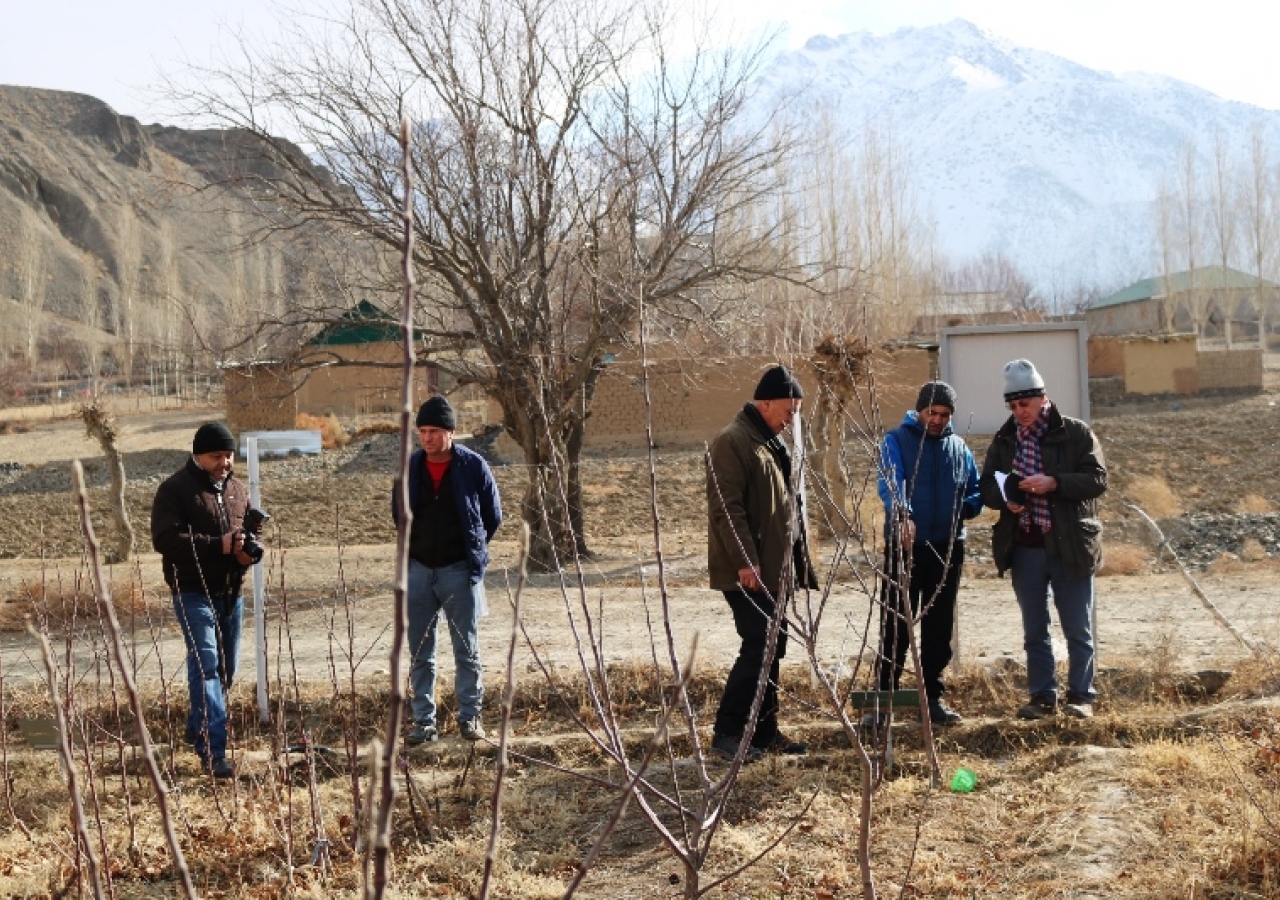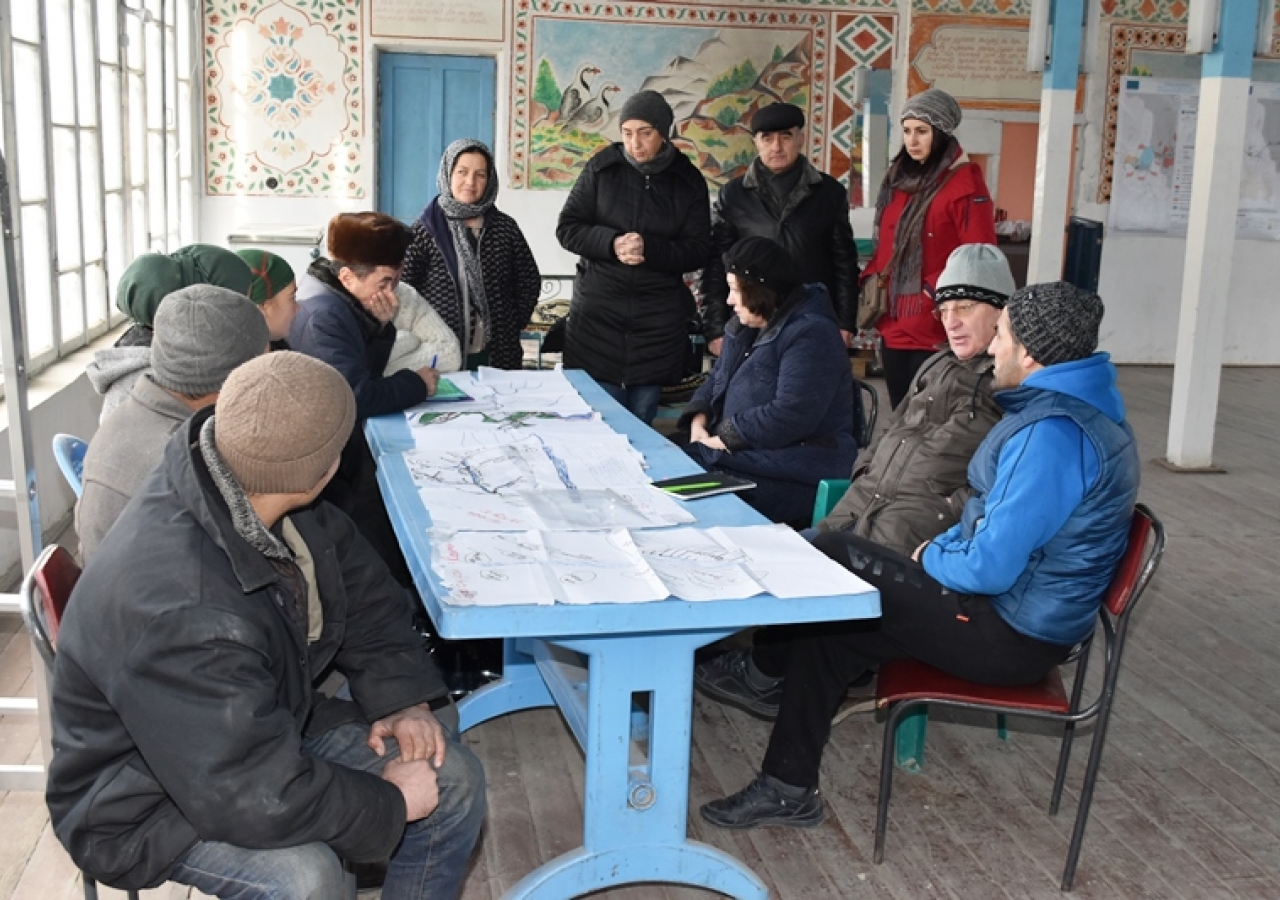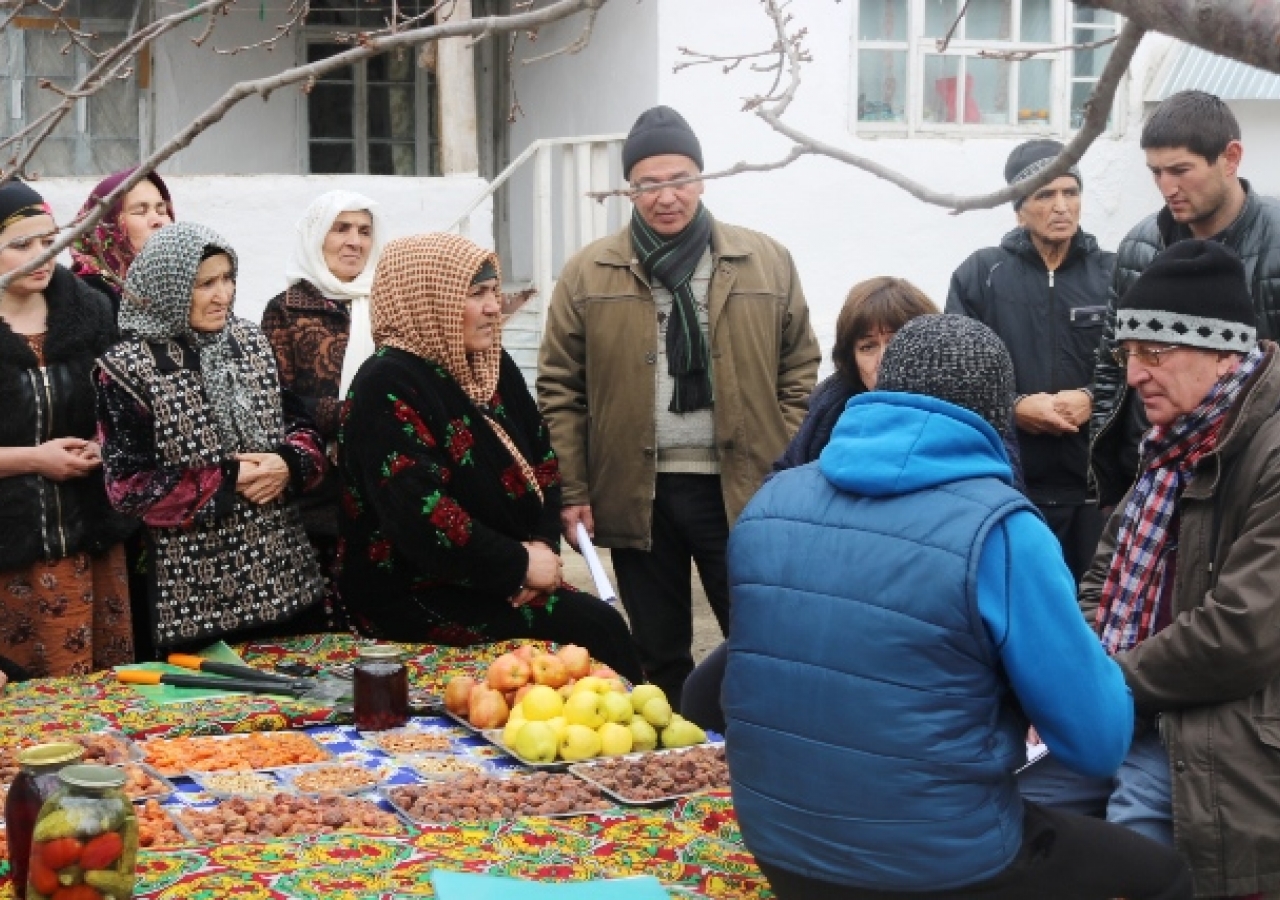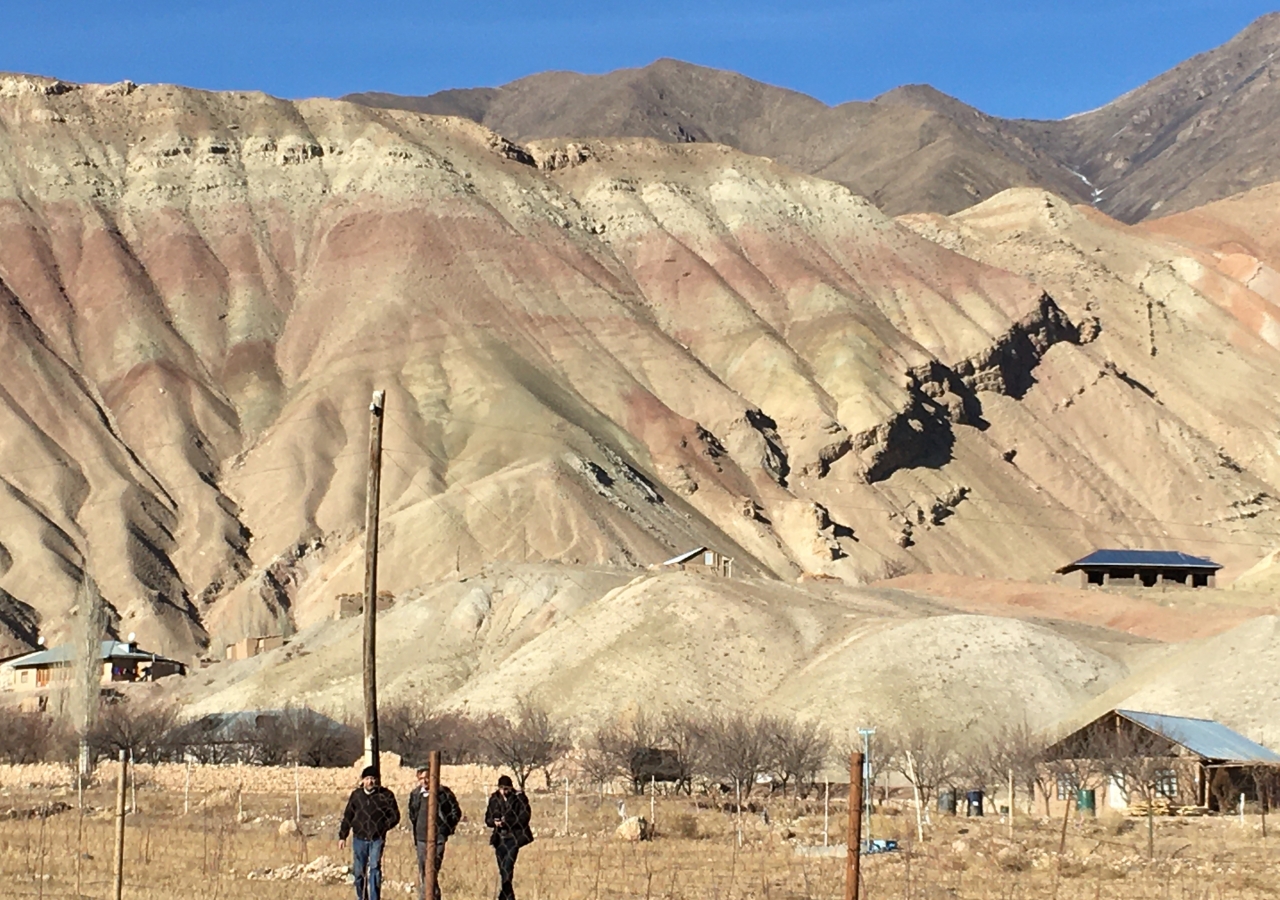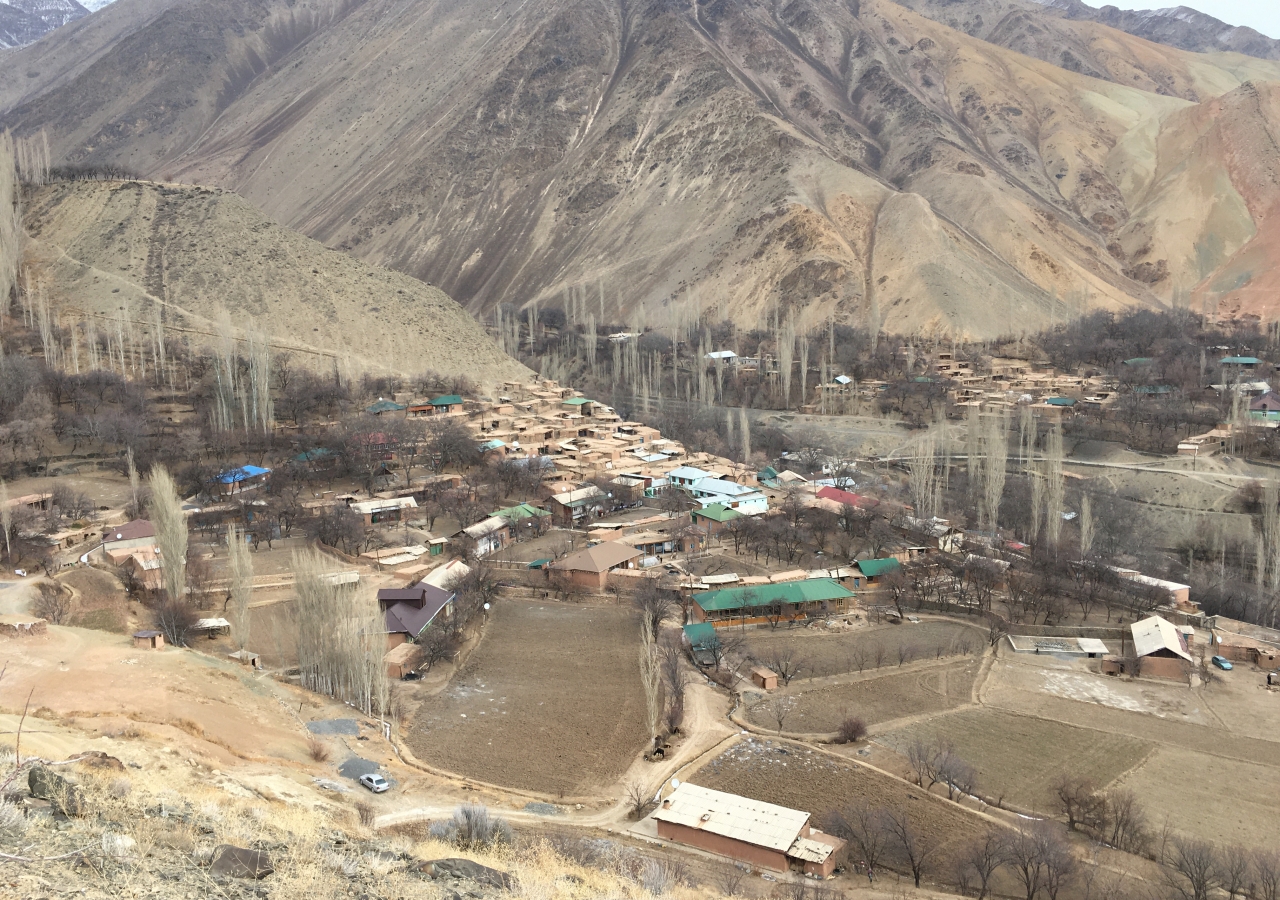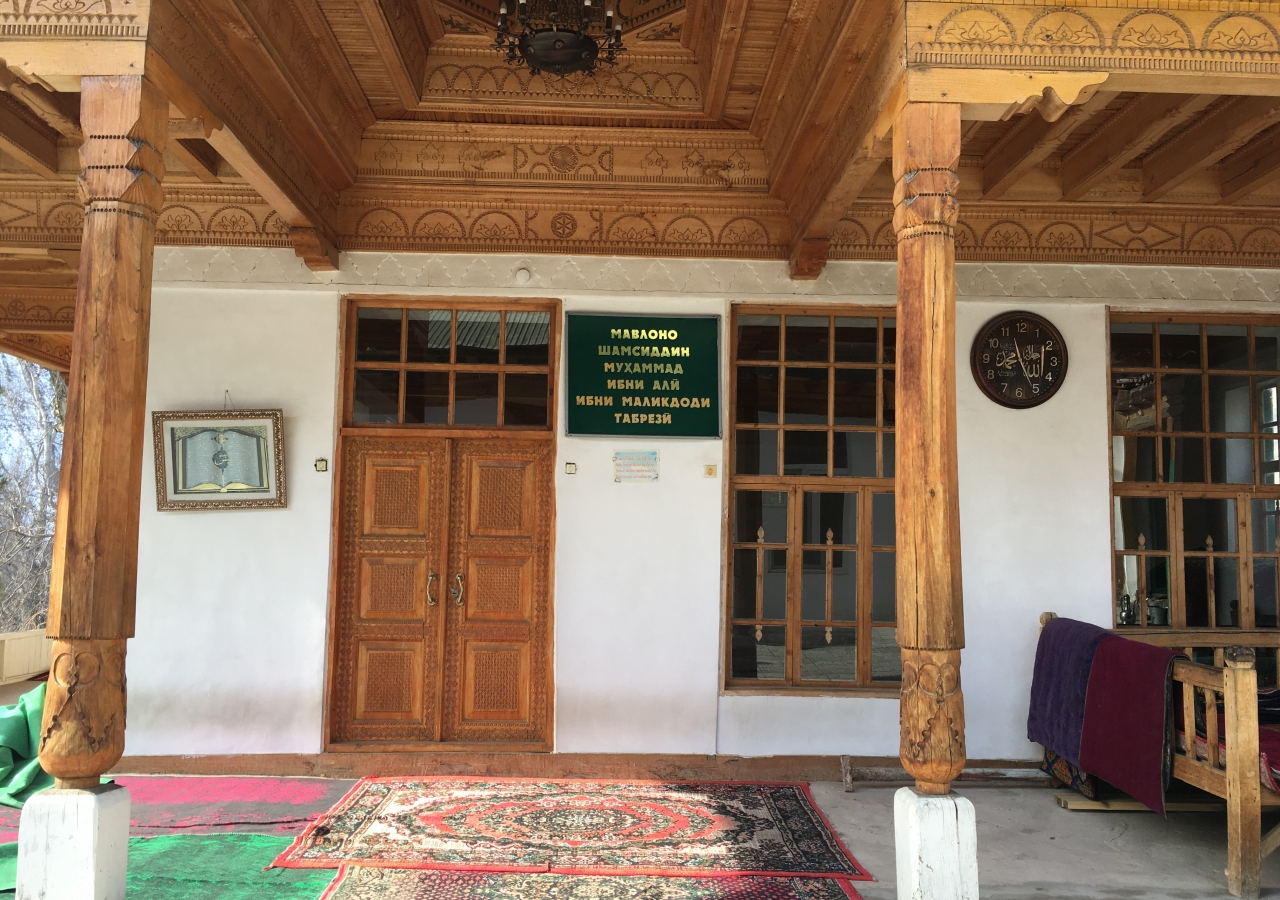Shiraz has over 40 years of professional experience in international development, primarily in renewable natural resources management and rural development. He has specialist knowledge in the fields of agriculture, soil and water conservation, community forestry, natural forest management, and climate change adaptation. He also volunteers with various charities, including Oxfam UK, and has previously served on TKN assignments in Pakistan and Kyrgyzstan. In particular, Shiraz has extensive experience of watershed management in mountain environments in the Himalayan region and China.
Shiraz’s assignment, initiated at the request of AKF Tajikistan CEO, Kishwar Abdulalishoev, has resulted in innovative ideas for upscaling this project’s activities into a proposed follow up project. It also provided renewed direction to improve the results of the current project, which is scheduled for completion in June 2021.
Through onsite visits to ten villages, meetings with local NGO teams who are implementing various project activities, and remote conferences with AKF in Dushanbe, Shiraz was able to review progress of this major project and provide direction for the follow up project.
Shiraz’s work started in December 2019, when he remotely reviewed key literature and project documents prior to starting fieldwork in January 2020. His work resulted in a “Programming Concept Paper” for a proposed extension of the project in the Upper Zarafshan River Valley, which included ideas for expansion of the project into more villages and streamlining of existing activities. He also proposed new activities that include: an improvement of irrigation systems; new forest management models in order to accelerate afforestation in degraded areas; changes to livestock production systems to reduce pressures on mountain pastures; and, development of pro-poor farming systems.
Shiraz explains, “Since the field work took place during the Tajik winter, it gave me the opportunity to see the problems and issues faced by farming households when extreme cold weather conditions occur. For example, AKF project implementation, infrastructure works, road connections, and airlines were disrupted by heavy snowfalls and avalanches during my visit. Many farming households were affected by frozen domestic water supply lines and living in houses with poor energy efficiency, thus affecting their quality of life. Climate change is also becoming a serious issue, affecting livelihoods and requiring disaster management in unstable bare landscapes affected by geomorphological processes.”
Shiraz praised the excellent cooperation of both the AKF team in Dushanbe and the four NGO teams in Ayni throughout his field visits in Tajikistan. He adds, “I was very happy to have this opportunity to visit AKF activities in Tajikistan, and was impressed by the positive support provided by the implementation teams in Dushanbe and Ayni. I obtained a strong understanding of the problems and issues faced by the farming households in both Ayni District and Kuhistoni Mastchoh District, and I was greatly honoured to contribute in some way to improving their livelihoods, food security, and management of natural resources.”
Shiraz has an interest in faith spaces so he also appreciated being able to visit sites in Dushanbe and the Zarafshan project area. These included the Shams al Tabrizi shrine in Veshab village (an AKF project village), the Ismaili Centre in Dushanbe, the new Great Mosque in Dushanbe (largest faith space in Central Asia), the Khujand mosque, and various sites of ancient mosques/look out posts along the Silk Road that pass through the project area in the Zarafshan Valley. He says, “This was an amazing experience that will never be forgotten, and I was fortunate that these faith spaces were all within the project areas”.
Kishwar Abdulalishoev, AKF Tajikistan CEO, says, “Shiraz did great work for us and made a really meaningful contribution during his TKN assignment. His work included undertaking a comprehensive project review highlighting progress against targets, delivering a progress report presentation to AKF leadership and the project team, and facilitating a discussion on the way forward. His concept paper includes specific innovative ideas that AKF will implement in the next phase if the project funding comes through. We are very grateful to Shiraz and look forward to bringing him back again”

